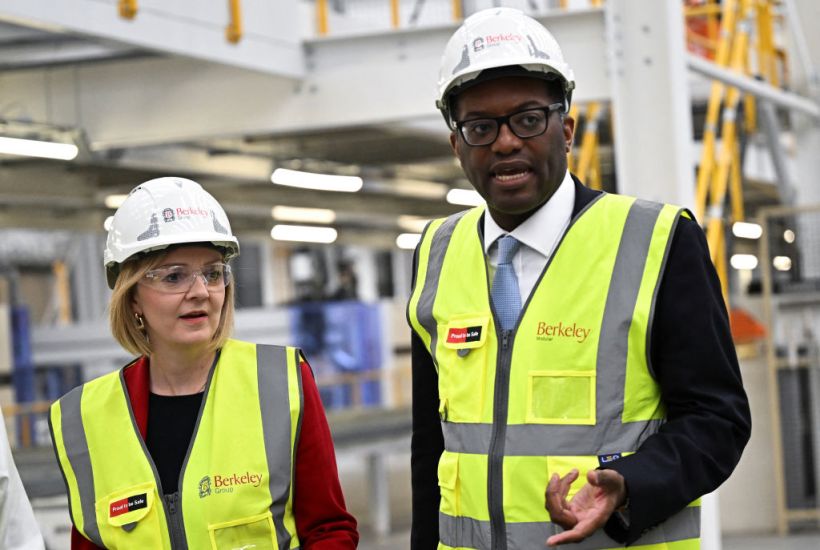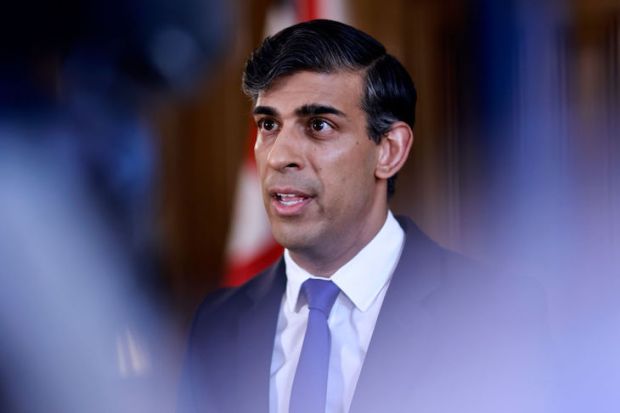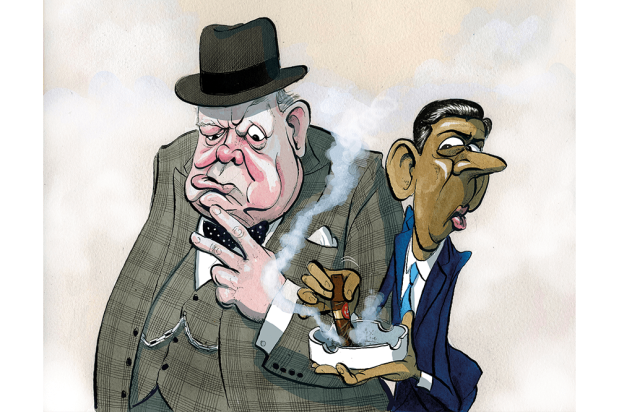Kwasi Kwarteng delivered his mini-Budget one week after the thirtieth anniversary of Black Wednesday, when the markets forcibly ejected sterling from the Exchange Rate Mechanism (ERM). There’s one measure that makes recent market turmoil seem modest and even manageable by comparison with Black Wednesday. According to the Bank of England’s database, the pound fell 2.16 per cent against the euro on the day the Chancellor delivered his fiscal statement. By last Thursday, the pound was down only 1.91 per cent against the euro. Black Wednesday and its immediate aftermath saw sterling fall 13.9 per cent against the Deutschmark. In all other respects, however, the economic and political situation is more dire now than thirty years ago.
Britain joined the ERM as part of its counter-inflation strategy. In October 1990, the month Britain joined, inflation stood at 10.9 per cent and 9.5 per cent when mortgage interest payments are excluded on the RPI(X) measure. By the time of Black Wednesday, inflation had fallen to 3.6 per cent and 3.8 per cent as measured by RPI(X), an outcome bought at the cost of a grim recession. The ERM had done what it was meant to do, but without a credible replacement, the market’s verdict on the unsustainability of the sterling’s Deutschmark peg would morph into a verdict of no confidence in the UK. Within weeks, the chancellor, Norman Lamont, put in place a totally new monetary framework, with its centrepiece the then novel idea of an inflation target, previously pioneered by New Zealand, and now pretty much standard for central banks.
Lamont set a target range for inflation of 1-4 per cent, with the aim of inflation falling into the lower half of the range in the second half of the parliament. Despite the recession bottoming three months before Black Wednesday and the economy expanding a healthy 2.1 per cent, the momentum of deflation saw inflation continuing to tumble, falling into the lower half of the range in April 1993, a year after the 1992 election and 18 months before the midpoint of the parliament. The key economic indicators were all pointing in the right direction. Inflation-targeting had won its credibility spurs.
The same cannot be said today. There is no framework for fiscal policy. Inflation remains high. Interest rates are likely to go higher. The energy crisis will intensify over the winter and is likely to settle like a dark cloud over the economy for years rather than months. Kwasi Kwarteng’s tax cuts achieved the remarkable, and quite possibly, unique double of receiving a simultaneous vote of no confidence from the financial markets and from voters. Rather than marking a way point out of the woods of inflation, it worsens an already fragile economy, as the cost of lost credibility is the need to incur more pain to regain it.
Whereas Lamont’s priority was to design a new framework to win back market confidence, Liz Truss has gone out of her way to trash what she saw as Treasury’s economic orthodoxy. This, together with the gratuitous decision to fire the Treasury’s top official, Sir Tom Scholar, greased the skids under sterling and gilts. When combined with a huge, open-ended subsidy of energy prices and a surprise tax cut that hadn’t featured in Truss’s leadership campaign, it suggested that the Prime Minister and Chancellor believe there are no limits to how much debt the Treasury can pile up.
Truss and Kwarteng haven’t revealed precisely if they’re repudiating the old orthodoxy of sound money and fiscal prudence or the new one of indiscriminate fiscal stimulus and support in response to supply side shocks and economic weakness. During the leadership campaign, Truss claimed she could prevent Britain falling into recession. Borrowing billions can’t insulate the economy from a sharp fall in energy supply by magically producing energy that’s not there, but fiscal loosening is what the Chancellor told the Governor of the Bank of England is needed. The clear inference is that rejecting economic orthodoxy means dumping fiscal prudence.
During his chancellorship, Gordon Brown made ‘prudence with a purpose’ his mantra. But his budget projections of large fiscal surpluses to camouflage his spending increases turned out to be large and growing deficits. To make it harder for chancellors to fiddle forecasts for their political benefit, George Osborne established the independent Office for Budget Responsibility (OBR). Initially Truss and Kwarteng side-lined the OBR, but at a meeting last week, the OBR outlined its intention to produce independent fiscal projections on 23 November, a date which could turn out to be this government’s rendezvous with destiny
Prudence is a political virtue as well as an economic one. In one fell swoop, the Truss government bailed out the Bank of England for its culpability in losing control of inflation and transferred all the blame for future interest rates rises to itself. Compared to Black Wednesday, the collapse in the Conservatives’ poll rating has been calamitous. In the months following Black Wednesday, Labour’s poll lead oscillated in the teens. It wasn’t until after John Smith’s death in May 1994 that Labour’s lead hit the low 30s, something that Truss and Kwarteng managed to achieve in a matter of days.
The Chancellor is rightly concerned about the economy having the highest tax burden in 70 years. The flaw in his policy is to mistake cause for effect. Britain has a high tax burden because the economy has been weak since the 2008 financial crisis. If investors believed Kwarteng’s tax cuts will transform Britain’s growth prospects, the markets wouldn’t have tanked. As it is, the likely fall-out from Kwarteng’s botched budget is for tax cuts to be linked in the public’s mind to higher mortgage rates, spending cuts and public sector strikes. It poisons the well for a tax-cutting agenda for years to come.
The announcement of the lifting of the fracking moratorium was also a presentational disaster. Based on its experience from its two fracking sites in Lancashire, Cuadrilla Resources put a £3.3 trillion valuation on Britain’s fracking reserves yielding close to £200 billion in tax revenues. That was in February, before Putin’s invasion of Ukraine. The higher the price of natural gas goes, the higher the cost of not fracking. Making fracking happen needs two things: a fully worked out compensation package so local households know how much fracking is worth to them individually; and it needs a natural salesman appointed as minister for fracking, a Grant Shapps rather than a Jacob Rees-Mogg.
This points to one further comparison with the events of three decades ago. Labour’s poll rating soared as the Conservative party – inflamed by Major pushing the Maastricht treaty through parliament and his decision to remain undecided on whether Britain should opt out of the euro – tore itself apart. One of Boris Johnson’s historic achievements was to end the party’s split on Europe by decisively winning the December 2019 election. But Grant Shapps isn’t in the cabinet because he supported the wrong candidate in the leadership election. The poison of faction has been reinjected into the bloodstream of the Conservative party. Without a swift change in policy and personnel, the Conservatives are on a glidepath to electoral oblivion.
Got something to add? Join the discussion and comment below.
Get 10 issues for just $10
Subscribe to The Spectator Australia today for the next 10 magazine issues, plus full online access, for just $10.



















Comments
Don't miss out
Join the conversation with other Spectator Australia readers. Subscribe to leave a comment.
SUBSCRIBEAlready a subscriber? Log in